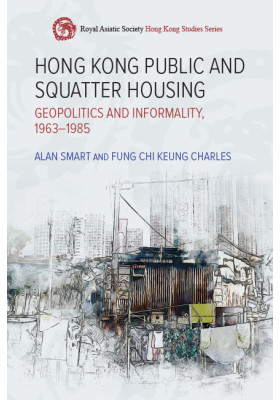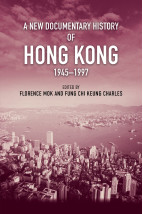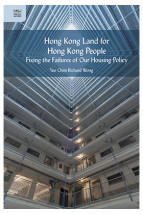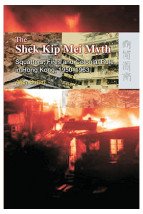Hong Kong Public and Squatter Housing
Geopolitics and Informality, 1963–1985
(香港的公共房屋與寮屋:地緣政治與非正規化,一九六三至一九八五)
ISBN : 978-988-8805-64-8
Royal Asiatic Society Hong Kong Studies Series (皇家亞洲學會香港研究叢書)
May 2023
340 pages, 9″ x 6″, 17 b&w illus.; 1 map and 2 tables
- HK$300.00
Ebooks
Also Available on
In Hong Kong Public and Squatter Housing: Geopolitics and Informality, 1963–1985, Alan Smart and Fung Chi Keung Charles trace two decades of development of squatting in Hong Kong. The authors reconstruct the government policy on squatting through both ethnographic and archival research. The book sheds new light on the consequences of various attempts to control encroachment on scarce urban space. It argues that intersecting policy agendas resulted in decisions that were often not desired, but which emerged as practical solutions from prior failures. The authors address the challenges of explaining confidential policy decisions and offer new approaches applicable in other contexts. Overall, Smart and Fung make an important contribution to the understanding of how public housing and squatting interacted in influential ways that have been poorly understood and offer new perspectives on the challenges of urban governance and housing problems.
“The definitive history of how resettlement policies evolved as the squatter population swelled and as London and Beijing moved closer to signing the 1984 Sino-British Declaration. A masterful combination of theorizing and documentary sleuthing, a landmark in contemporary debates over the optimal responses to the formalization of informal property.”
—Deborah Davis, Yale University
“Smart and Fung offer a fresh and thought-provoking analysis of the changing state-society relations in the postwar decades by unravelling the complexities of Hong Kong’s urban landscape through their critical analysis of the question of informality and the issue of squatting.”
—Lui Tai-Lok, Education University of Hong Kong
“Employing ethnography and combing through archives, Smart and Fung uncover how the British formalized squatter housing. Highlighting questions of sociopolitical and historical change by analyzing bureaucratic and geopolitical forces—a fascinating project delving into the nature of colonial rule, immigrant resilience, and political economic structures. A major contribution to evidence-based settler colonial studies.”
—Setha Low, City University of New York









